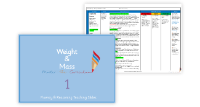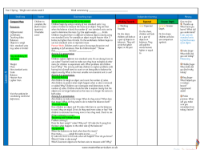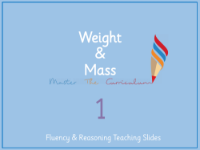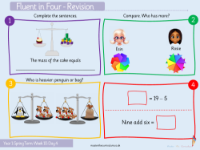Weight and volume - Compare mass - Worksheet
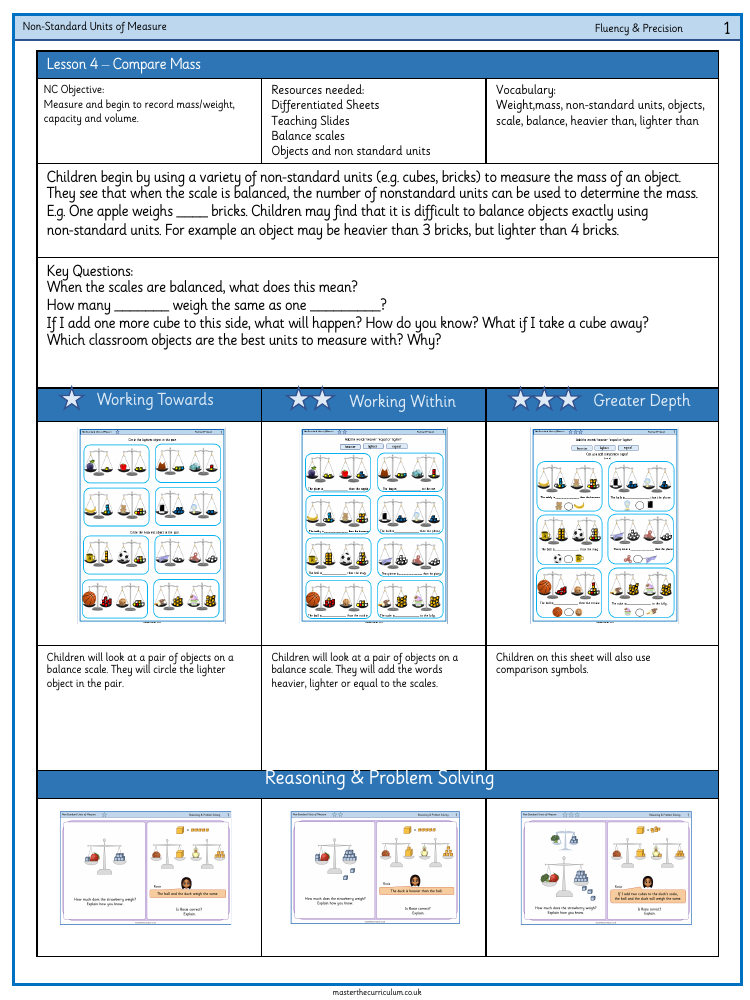
Maths Resource Description
The lesson titled "Compare Mass" is aimed at teaching children how to measure and record mass using non-standard units. This lesson is part of a series that focuses on developing fluency and precision in understanding weight and volume. Children will use a variety of objects like cubes and bricks to determine the mass of items by balancing them on scales. This hands-on approach helps them grasp the concept that when the scales are balanced, the number of non-standard units corresponds to the mass of the object. For instance, they might determine how many bricks are equivalent to the weight of one apple. This method, however, can present challenges, as objects may not balance perfectly, being slightly heavier or lighter than the number of non-standard units used.
Throughout the lesson, children will be encouraged to explore key questions about the balance and weight of objects, such as the implications of adding or removing a cube from one side of the scale. They will also discuss which classroom objects are best suited for measuring and why. The activities include identifying the lighter or heavier object in a pair on a balance scale, and using words like 'heavier', 'lighter', or 'equal' to describe their relationship. More advanced worksheets prompt children to use comparison symbols (> = <) to further illustrate these concepts. The lesson concludes with reasoning and problem-solving exercises, where children must justify their answers about the weight of objects using non-standard units of measure, thereby deepening their understanding of mass and comparison.

